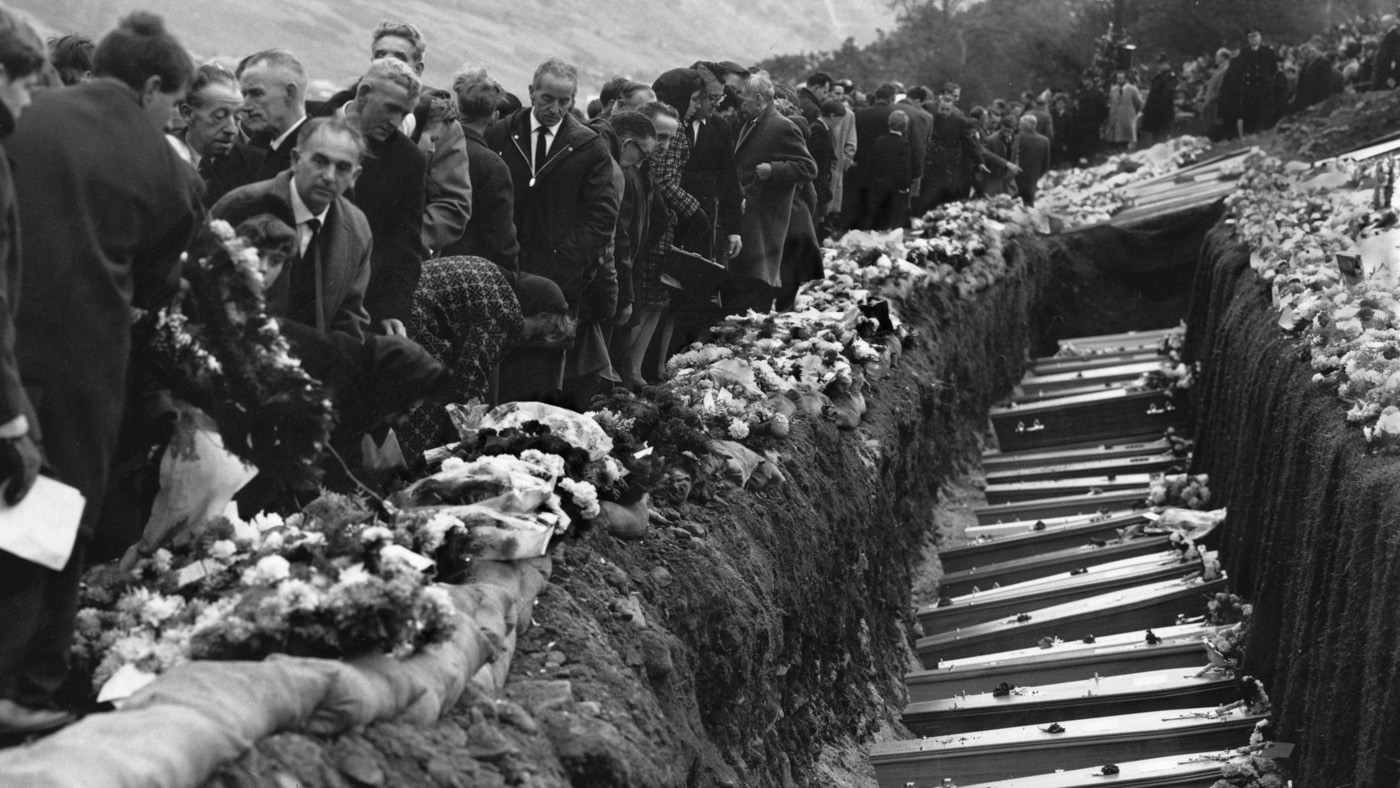What happened at Aberfan?
Survivors say medical tests following the coal waste disaster were akin to ‘torture’

A free daily email with the biggest news stories of the day – and the best features from TheWeek.com
You are now subscribed
Your newsletter sign-up was successful
Survivors of the Aberfan disaster in Wales 55 years ago have said they were subjected as children to stressful medical tests, described by one as “torture”.
On 21 October 1966, 116 children and 28 adults were killed when a mountain of coal waste collapsed on to the mining village of Aberfan, in Wales. Now, some survivors say the process to establish how much compensation families should receive caused them further trauma.
What happened?
The Week
Escape your echo chamber. Get the facts behind the news, plus analysis from multiple perspectives.

Sign up for The Week's Free Newsletters
From our morning news briefing to a weekly Good News Newsletter, get the best of The Week delivered directly to your inbox.
From our morning news briefing to a weekly Good News Newsletter, get the best of The Week delivered directly to your inbox.
For the 50 years before 1966, millions of tons of mining debris from the Merthyr Vale Colliery were deposited on the side of Mynydd Merthyr, directly above Aberfan.
On 21 October 1966, at 9.15am, after several days of heavy rain, 150,000 tonnes of the waste broke away from the tip and flowed downhill at high speed, picking up more debris as it moved.
The mountain of slurry covered the village within a few minutes. The classrooms at Pantglas Junior School were inundated and its young pupils and teachers died from either impact or suffocation.
A few survivors were pulled from the rubble, but no one was recovered alive after 11am that day.
A free daily email with the biggest news stories of the day – and the best features from TheWeek.com
A “generation of children has been wiped out”, declared George Thomas, secretary of state for Wales from 1968 and 1970.
Who was to blame?
An inquiry found the National Coal Board (NCB) wholly to blame and it was ordered to pay compensation for loss and personal injury – a ruling that was disputed until 1997.
A BBC documentary, Aberfan: The Fight for Justice, broadcast in 2016, underlined the negligence of the NCB and its chair, Lord Robens, who died in 1999, in particular. “Aberfan happened because of a mix of negligence, arrogance and incompetence for which no individual was punished or even held to account,” said presenter Huw Edwards.
NCB lawyers had argued the disaster was caused by a “critical geological environment” and said there was no way of foreseeing the slide. However, the dangers of tipping waste on wet mountain sides were well-known and eventually, under cross-examination, the board was found responsible for the disaster.
But the NCB and the Treasury refused to accept full financial responsibility and the Aberfan Disaster Fund had to contribute £150,000 towards removing the remaining tip that overlooked the village.
This was finally repaid by Tony Blair’s Labour government in 1997.
What is at the site now?
A memorial garden was reopened on the site of Pantglas School in 2019 after a £500,000 renovation.
David Davies, chair of Aberfan Memorial Charity, told a crowd of 200 people on the day of the reopening that “the world has not forgotten Aberfan”.
He continued: “The memorial garden will continue to be a place to visit, a tranquil place to pause and reflect.”
What happened to the survivors?
One of the surviving children, Gaynor Madgwick, was waiting for her maths lesson to begin when the coal waste engufled Pantglas Junior School. She was pulled from the wreckage but her brother and sister died.
She told BBC Wales podcast Aberfan: Tip Number 7 this week that she was later forced into a psychiatric hospital, where thick gel was put in her hair, a cap was put on her head and she was attached to a wooden board.
“There were all these plugs and leads coming out of the board which would be fixed into the cap on your head and you had to sit there and be interrogated, basically,” she said. “It was torture, interrogation. You lost all sense of who you were.”
One survivor called the tests a “frightening experience”, while another said it was “just horrifying”.
The BBC said they later learned that the Aberfan Disaster Fund wanted to compensate the children for psychological damage from the disaster, but that they believed they would need evidence to show the Charity Commission.
-
 Local elections 2026: where are they and who is expected to win?
Local elections 2026: where are they and who is expected to win?The Explainer Labour is braced for heavy losses and U-turn on postponing some council elections hasn’t helped the party’s prospects
-
 6 of the world’s most accessible destinations
6 of the world’s most accessible destinationsThe Week Recommends Experience all of Berlin, Singapore and Sydney
-
 How the FCC’s ‘equal time’ rule works
How the FCC’s ‘equal time’ rule worksIn the Spotlight The law is at the heart of the Colbert-CBS conflict